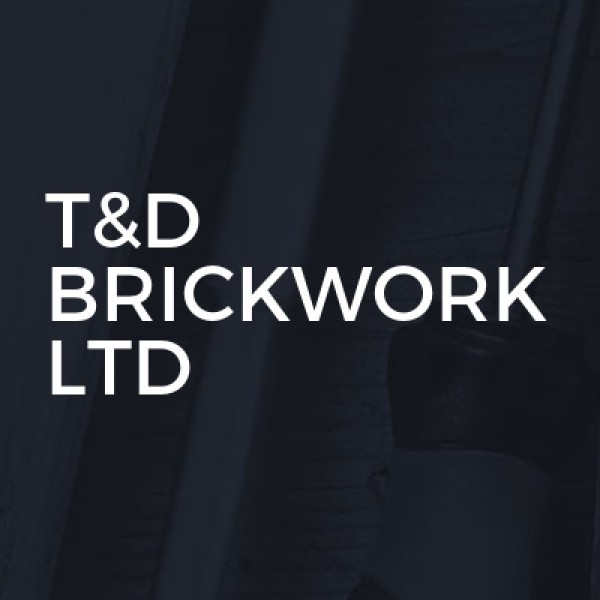Home Office Conversions in Enfield
Search Home Office Conversions in places nearby
Introduction to Home Office Conversions in Enfield
In recent years, the concept of working from home has gained significant popularity, leading to a surge in home office conversions. Enfield, a vibrant borough in North London, is no exception to this trend. With its unique blend of urban and suburban living, Enfield offers an ideal setting for transforming a part of your home into a productive workspace. This article delves into the various aspects of home office conversions in Enfield, providing insights and guidance for those considering this worthwhile endeavour.
The Benefits of Home Office Conversions
Creating a home office in Enfield can bring numerous advantages. Firstly, it offers the convenience of working from home, eliminating the need for daily commutes and allowing for a better work-life balance. Additionally, a dedicated workspace can enhance productivity and focus, as it separates work from personal life. Moreover, a well-designed home office can increase the value of your property, making it a smart investment for the future.
Improved Work-Life Balance
One of the primary benefits of a home office is the improved work-life balance it offers. By eliminating the need for a daily commute, individuals can save time and reduce stress, allowing for more leisure activities and family time. This balance is crucial for maintaining mental well-being and overall happiness.
Enhanced Productivity
A dedicated workspace can significantly boost productivity. Without the distractions of a bustling office environment, individuals can focus better on their tasks. Furthermore, a home office can be customised to suit personal preferences, creating an environment that fosters creativity and efficiency.
Increased Property Value
Investing in a home office conversion can also increase the value of your property. As remote work becomes more common, potential buyers may view a home office as a valuable asset, making your property more attractive in the real estate market.
Planning Your Home Office Conversion
Before diving into a home office conversion, careful planning is essential. This involves assessing your needs, setting a budget, and considering the available space in your home. In Enfield, where property sizes and layouts vary, it's crucial to evaluate the best location for your home office.
Assessing Your Needs
The first step in planning a home office conversion is to assess your specific needs. Consider the type of work you'll be doing, the equipment you'll require, and the amount of space you'll need. This assessment will guide your decisions regarding layout, furniture, and technology.
Setting a Budget
Establishing a budget is a critical aspect of planning. Determine how much you're willing to invest in your home office conversion, considering costs for furniture, technology, and any necessary renovations. It's important to strike a balance between quality and affordability.
Choosing the Right Space
In Enfield, homes come in various shapes and sizes, so selecting the right space for your office is vital. Consider factors such as natural light, noise levels, and proximity to other living areas. A quiet, well-lit room can significantly enhance your work environment.
Designing Your Home Office
The design of your home office plays a crucial role in its functionality and aesthetics. A well-designed office can inspire creativity and productivity, making it a pleasant place to work. Here are some key considerations for designing your home office in Enfield.
Furniture and Layout
Choosing the right furniture is essential for comfort and efficiency. Invest in a quality desk and ergonomic chair to support long hours of work. Consider the layout of your office, ensuring that it allows for easy movement and access to necessary equipment.
Lighting and Ambiance
Lighting is a critical element in any workspace. Natural light is ideal, so position your desk near a window if possible. Additionally, incorporate task lighting to reduce eye strain. The overall ambiance should be calming and conducive to concentration.
Technology and Connectivity
Ensure your home office is equipped with the necessary technology and connectivity. A reliable internet connection, computer, and other essential devices are crucial for seamless work. Consider investing in noise-cancelling headphones if your home environment is noisy.
Legal and Regulatory Considerations
When converting a part of your home into an office, it's important to be aware of any legal and regulatory requirements. In Enfield, there may be specific guidelines and permissions needed for certain types of conversions.
Planning Permissions
Depending on the extent of your conversion, you may need planning permission from the local council. This is particularly relevant if you're making structural changes or extending your property. It's advisable to consult with a professional to ensure compliance with local regulations.
Building Regulations
Building regulations ensure that any construction work meets safety and quality standards. Even if planning permission isn't required, building regulations may still apply. These regulations cover aspects such as electrical work, insulation, and ventilation.
Insurance Implications
Converting a part of your home into an office may affect your home insurance policy. It's important to inform your insurance provider of any changes to ensure you have adequate coverage. This may include adjustments to your contents insurance to cover office equipment.
Cost Considerations for Home Office Conversions
The cost of a home office conversion can vary widely depending on the scope of the project and the materials used. It's important to have a clear understanding of potential expenses to avoid any financial surprises.
Budgeting for Renovations
Renovations can be a significant part of the cost of a home office conversion. This may include structural changes, electrical work, and decorating. It's important to obtain quotes from multiple contractors to ensure you're getting a fair price.
Furniture and Equipment Costs
Investing in quality furniture and equipment is crucial for a functional home office. Consider the cost of a desk, chair, storage solutions, and technology. While it's important to stay within budget, prioritise items that will enhance your comfort and productivity.
Ongoing Expenses
In addition to initial setup costs, consider any ongoing expenses associated with your home office. This may include increased utility bills, internet costs, and maintenance. Budgeting for these expenses will help you manage your finances effectively.
Maximising Space in Small Homes
For those living in smaller homes in Enfield, creating a home office can be challenging. However, with some creativity and smart planning, it's possible to maximise space and create a functional workspace.
Utilising Multi-Functional Furniture
Multi-functional furniture can be a game-changer in small spaces. Consider a desk that doubles as a dining table or a fold-away desk that can be stored when not in use. These solutions can help you make the most of limited space.
Vertical Storage Solutions
When floor space is limited, think vertically. Install shelves or wall-mounted storage to keep your workspace organised without taking up valuable floor space. This approach can help you maintain a clutter-free environment.
Creating a Dedicated Nook
If a separate room isn't available, consider creating a dedicated nook for your home office. This could be a corner of a living room or bedroom, separated by a room divider or curtain. Personalise this space to make it feel like a distinct work area.
Incorporating Ergonomics in Your Home Office
Ergonomics is the science of designing a workspace that promotes comfort and efficiency. Incorporating ergonomic principles into your home office can prevent strain and injury, ensuring a healthy work environment.
Choosing the Right Chair
An ergonomic chair is essential for maintaining good posture and preventing back pain. Look for a chair with adjustable height, lumbar support, and armrests. This investment can make a significant difference in your comfort and productivity.
Desk Height and Monitor Position
The height of your desk and the position of your monitor are crucial for preventing strain. Your desk should allow your arms to rest comfortably at a 90-degree angle, and your monitor should be at eye level to avoid neck strain.
Keyboard and Mouse Placement
Proper placement of your keyboard and mouse can prevent repetitive strain injuries. Keep them within easy reach and at a height that allows your wrists to remain straight. Consider using a wrist rest for added support.
Adding Personal Touches to Your Home Office
While functionality is key, adding personal touches to your home office can make it a more enjoyable place to work. Personalisation can boost your mood and creativity, making your workspace uniquely yours.
Decor and Aesthetics
Incorporate decor that reflects your personality and style. This could include artwork, plants, or decorative items. A visually appealing workspace can inspire creativity and make work more enjoyable.
Colour Schemes and Themes
Choose a colour scheme or theme that resonates with you. Calming colours like blues and greens can create a serene environment, while bold colours can energise and motivate. Experiment with different combinations to find what works best for you.
Incorporating Nature
Bringing elements of nature into your home office can have a calming effect. Consider adding plants or a small water feature. Natural elements can improve air quality and create a soothing atmosphere.
Technology Tips for a Modern Home Office
In today's digital age, technology plays a crucial role in a home office. Ensuring you have the right tools and setup can enhance your productivity and streamline your work processes.
Essential Gadgets and Devices
Invest in essential gadgets and devices that support your work. This may include a high-quality computer, printer, and scanner. Additionally, consider tools like a webcam and microphone for virtual meetings.
Optimising Internet Connectivity
A reliable internet connection is vital for remote work. Ensure your Wi-Fi is strong and stable, and consider upgrading your plan if necessary. A Wi-Fi extender can help improve connectivity in larger homes.
Software and Apps for Productivity
Utilise software and apps that enhance productivity and organisation. Tools like project management software, cloud storage, and communication apps can streamline your workflow and keep you connected with colleagues.
Frequently Asked Questions
- What are the benefits of a home office conversion in Enfield? Home office conversions offer improved work-life balance, enhanced productivity, and increased property value.
- Do I need planning permission for a home office conversion in Enfield? It depends on the extent of the conversion. Consult with the local council or a professional to determine if planning permission is required.
- How can I maximise space in a small home office? Utilise multi-functional furniture, vertical storage solutions, and create a dedicated nook to maximise space.
- What are some ergonomic tips for a home office? Choose an ergonomic chair, ensure proper desk height and monitor position, and place your keyboard and mouse correctly.
- How can I personalise my home office? Add decor, choose a colour scheme, and incorporate natural elements to personalise your workspace.
- What technology is essential for a modern home office? Essential technology includes a reliable computer, printer, scanner, and strong internet connectivity.
In conclusion, home office conversions in Enfield offer a wealth of benefits, from improved work-life balance to increased property value. By carefully planning and designing your workspace, you can create a productive and enjoyable environment that meets your needs. Whether you're working with a spacious home or a compact apartment, there are plenty of creative solutions to help you make the most of your space. Embrace the opportunity to personalise your home office, and enjoy the flexibility and convenience of working from home in Enfield.















